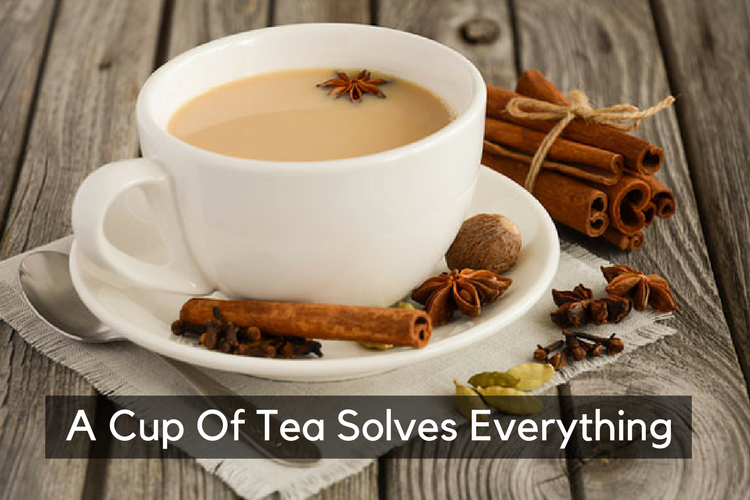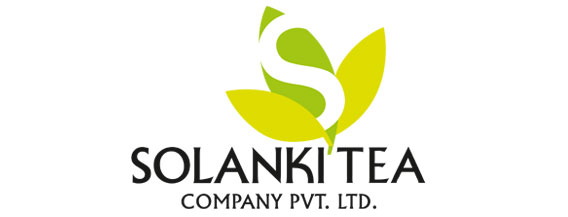
Tea is a popular aromatic beverage that is enjoyed by people around the world. It is made from the leaves of the Camellia sinensis plant, which is native to East Asia. The leaves of the tea plant are harvested, processed, and then infused in hot water to create the beverage known as tea.
The history of tea dates back thousands of years and has its roots in ancient China. Here’s a brief overview of the history of tea:
Legend and Early Origins:
According to Chinese legend, tea was discovered by Emperor Shen Nong in 2737 BCE. It is said that while sitting under a tree, a tea leaf accidentally fell into his cup of hot water, creating an enticing aroma and refreshing taste. This led to the exploration and cultivation of tea plants.
Early Consumption in China:
Tea became popular as a medicinal beverage in China during the Zhou Dynasty (1046-256 BCE) and was primarily used for its perceived health benefits. It gradually spread across the country and became a drink consumed for pleasure and socializing.
Development of Tea Culture:
During the Tang Dynasty (618-907 CE), tea drinking and tea culture began to flourish. It became an integral part of Chinese society and was enjoyed by the aristocracy and intellectuals. Tea preparation and appreciation became highly refined, and tea houses started to emerge as social gathering places.
Introduction to Japan:
Tea was introduced to Japan in the 9th century CE by Buddhist monks returning from China. The Japanese embraced tea, and it became deeply rooted in their culture. The tea ceremony, known as chanoyu or chado, developed as a formalized ritual for preparing and serving tea.
Arrival in Europe:
Tea was first brought to Europe by Portuguese traders in the 16th century. It gained popularity among the nobility and elite classes. The Dutch and British East India Companies played a significant role in the global tea trade during the 17th and 18th centuries, making tea more accessible to European consumers.
Colonial Expansion and Global Spread:
As European powers expanded their colonial territories, they established tea plantations in regions such as India, Sri Lanka (formerly Ceylon), and Africa. This led to the mass production and exportation of tea to meet the growing demand.
Tea in India:
Tea cultivation in India began under British colonial rule in the 19th century. The British established large tea estates in regions like Assam and Darjeeling. India eventually became one of the world’s largest tea producers and consumers.
Modern Tea Industry:
Today, tea is grown and consumed worldwide, with major tea-producing countries including China, India, Kenya, Sri Lanka, and others. Different tea varieties and blends have been developed, catering to diverse tastes and preferences.
Tea has become an integral part of many cultures, with various tea traditions, rituals, and ceremonies practiced around the world. It continues to be enjoyed for its distinct flavors, health benefits, and the social connections it fosters.

There are several different types of tea, which are distinguished by factors such as the processing method, oxidation level, and the specific cultivar of the tea plant used. The major types of tea include:
Green Tea: Green tea is made from tea leaves that undergo minimal oxidation during processing. The leaves are typically steamed or pan-fired to halt the oxidation process, preserving the natural green color and fresh flavor. Green tea is known for its delicate and grassy taste.
Black Tea: Black tea is made from tea leaves that are fully oxidized. The leaves are withered, rolled, and allowed to undergo enzymatic oxidation before being dried. This process results in a dark-colored tea with a robust flavor and a higher caffeine content compared to other types of tea.
Oolong Tea: Oolong tea falls between green and black tea in terms of oxidation level. The leaves are partially oxidized, giving oolong tea a diverse range of flavors and aromas. It can range from light and floral to rich and fruity, depending on the specific variety.
White Tea: White tea is made from young tea leaves and buds that are minimally processed. The leaves are simply withered and dried, allowing them to retain their natural appearance. White tea has a delicate flavor and is known for its subtle floral and sweet notes.
Herbal Tea: Herbal teas, also known as tisanes, are not technically teas as they are not made from the Camellia sinensis plant. Instead, they are infusions made from various herbs, flowers, fruits, or spices. Common examples include chamomile, peppermint, hibiscus, and rooibos.
When it comes to the best masala tea powder in India, there are several popular brands known for their quality and flavor. Here are a few well-regarded options:
Solanki Tea: Solanki Tea is a Mumbai-based brand that offers a range of tea blends suitable for making milk tea. Their tea leaves produce a flavorful cup when combined with milk. They have a variety of tea blends, including masala chai, which can be enhanced with the addition of milk. It’s important to note that taste preferences can vary, and what works best for one person may not be the same for another. You may want to try different masala tea powders to find the one that suits your taste preferences and creates the desired flavor profile in your masala chai.
| Product List | Price List |
|---|---|
| CTC Tea | Buy Now |
| Green Tea | Buy Now |
| Flavoured Tea | Buy Now |
| Premix Tea | Buy Now |
| Yellow Tea(1 kg Pack) | Buy Now |
| Assam Tea(1 kg Pack) | Buy Now |
| Elaichi Tea(1 kg Pack) | Buy Now |
| Select Tea(500 Grams Pack) | Buy Now |
| Premium Tea(5 kg Pack) | Buy Now |
| Gold Tea(5 kg Pack) | Buy Now |
| Select Tea(250 Gram Pack) | Buy Now |
| Gold Tea(250 Gram Pack) | Buy Now |
| Green City Tea(250 Gram Pack) | Buy Now |
| Supreme Tea(250 Gram Pack) | Buy Now |
| Bobby Elaichi Tea(250 Gram Pack) | Buy Now |
| Elaichi Tea(250 Gram Pack) | Buy Now |
| Assam Tea(100 Gram Pack) | Buy Now |
| Amrutulya Masala Tea(500 gram Pack) | Buy Now |
| Amrutulya Masala Tea(1 KG Pack) | Buy Now |
| Chocolate Flavoured Tea | Buy Now |
| Mango Flavoured Tea | Buy Now |
| Cardamom Flavoured Tea | Buy Now |
| Masala Flavoured Tea | Buy Now |
| Pan Flavoured Tea | Buy Now |
| Lemongrass Flavoured Tea | Buy Now |
| Kesar Elaichi Flavoured Tea | Buy Now |
| Plain Kadak Tea | Buy Now |
| Ginger Tea | Buy Now |
| Tulsi(Basil) Tea | Buy Now |
| Rose Flavoured Tea | Buy Now |
| Irani Tea | Buy Now |
| Green Tea | Buy Now |
| Premix Tea | Buy Now |
| Jaggery(Gud) Tea | Buy Now |
| Lemon Tea | Buy Now |
| Noon Tea | Buy Now |
| Kashmiri Kawha | Buy Now |
| Kashmiri Tea | Buy Now |
A 1 kg pack should cost you anywhere from INR 200 to INR 400, depending upon its quality and brand.
Buy 100% Authentic and Delicious Tea from Solanki Tea – A brand based out of the Assam Region itself, Solanki Tea aims to bring the best of Assam exclusives at the fingertips of the worldwide audience.
Whether you have already tried Hotel dust Tea in Assam and are looking to relive the experience or want to try it for the first time, Solanki Tea is your place. The quality of our Assam Tea leaves is unmatched and hard to find elsewhere. Buy it once and we are sure you’ll come back for more Solanki tea. – Buy Now
Conclusion –
Keeping in mind all types of tea-loving people, we have detailed information about the best tea brands in today’s discussion. Hopefully, this will be a great help for them.

Wholesale, Bulk Tea Partner In Vashi, Navi Mumbai
1) Become A Wholesale Tea Partner In Vashi, Navi Mumbai With solanki Tea
2) Do you run a cafe, hotel, retail shop or a gift planner and have a regular need to procure the finest tea blends for your decerning customers.
3) As long as you are looking for the best quality teas, we at Solanki Tea are happy to extend our full support.
4) Solanki Tea is a premium tea Manufacturers In Vashi, Navi Mumbai offering a vast selection of directly sourced teas from across India, after tasting by expert tea tasters.
5) We offer a great selection of exotic premium organic, loose hotel dust tea from Darjeeling, Assam, Sikkim, Kangra, Terai and Nepal at bulk and wholesale. As a Manufacturers loose leaf tea supplier In Vashi, Navi Mumbai, we assure that our teas are obtained from India’s various tea manufacturing regions, and unassuming to suit you and your customer’s palate. The competence, experience and expertise guarantees the finest teas at the most appropriate rates.
Contact Us
…………………
Solanki Tea Company Pvt. Ltd.
Address: L-29, APMC Masala Market, APMC Market, Sector 19, Vashi, Navi Mumbai, Maharashtra 400703
Phone Number: 09819680073
Website: https://www.solankitea.com/
GBP Profile: https://g.co/kgs/7dzKfDw
Social Profiles
…………………….
Facebook: https://www.facebook.com/solankiteeofficial/
Instagram: https://www.instagram.com/solankiteaofficial/
Twitter: https://twitter.com/SolankiTea
Pinterest: https://in.pinterest.com/solankitea/
Youtube: https://www.youtube.com/channel/UCfq0tk63fpygl6jIGR1Foiw/videos
We support small retailers worldwide who wish to purchase tiny quantities of the finest and most exotic retailing/online sales.
Get in touch today!

[pvc_stats postid=”” increase=”1″ show_views_today=”1″]